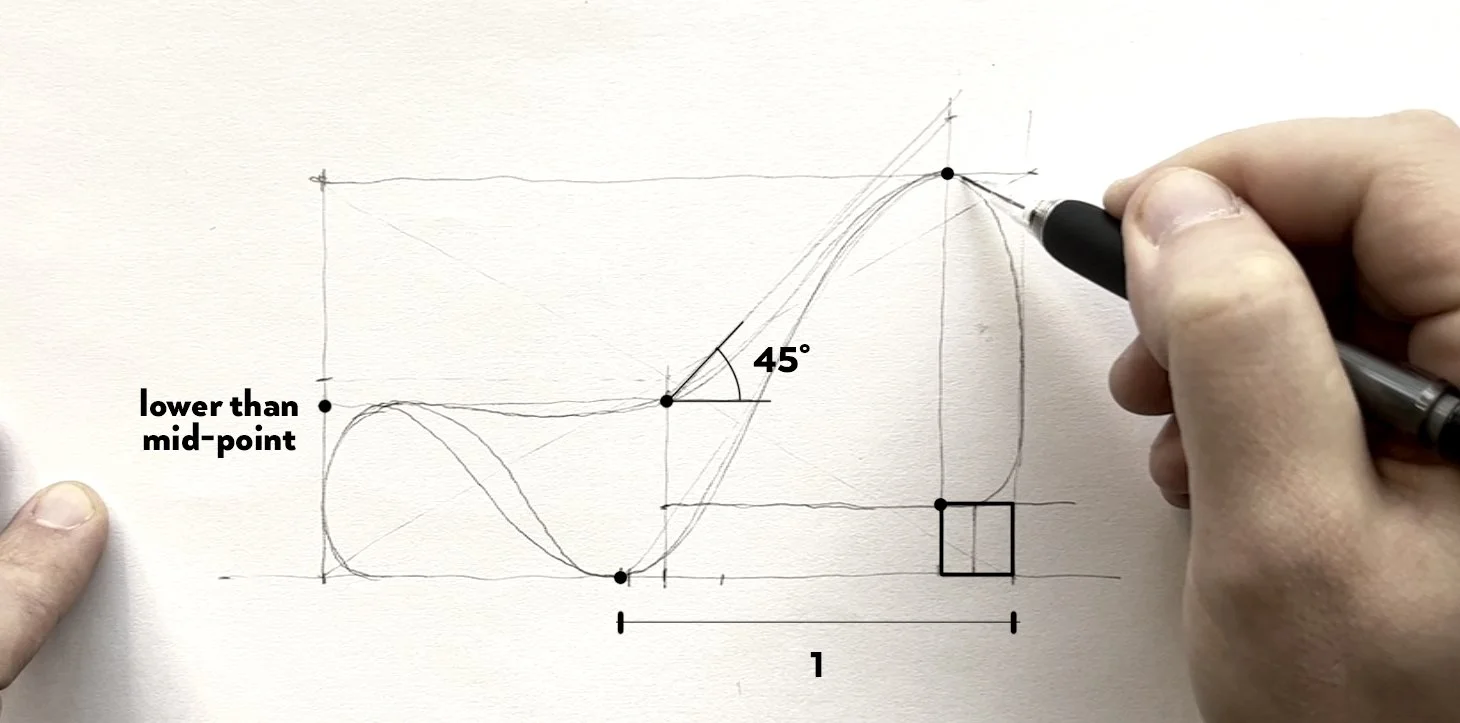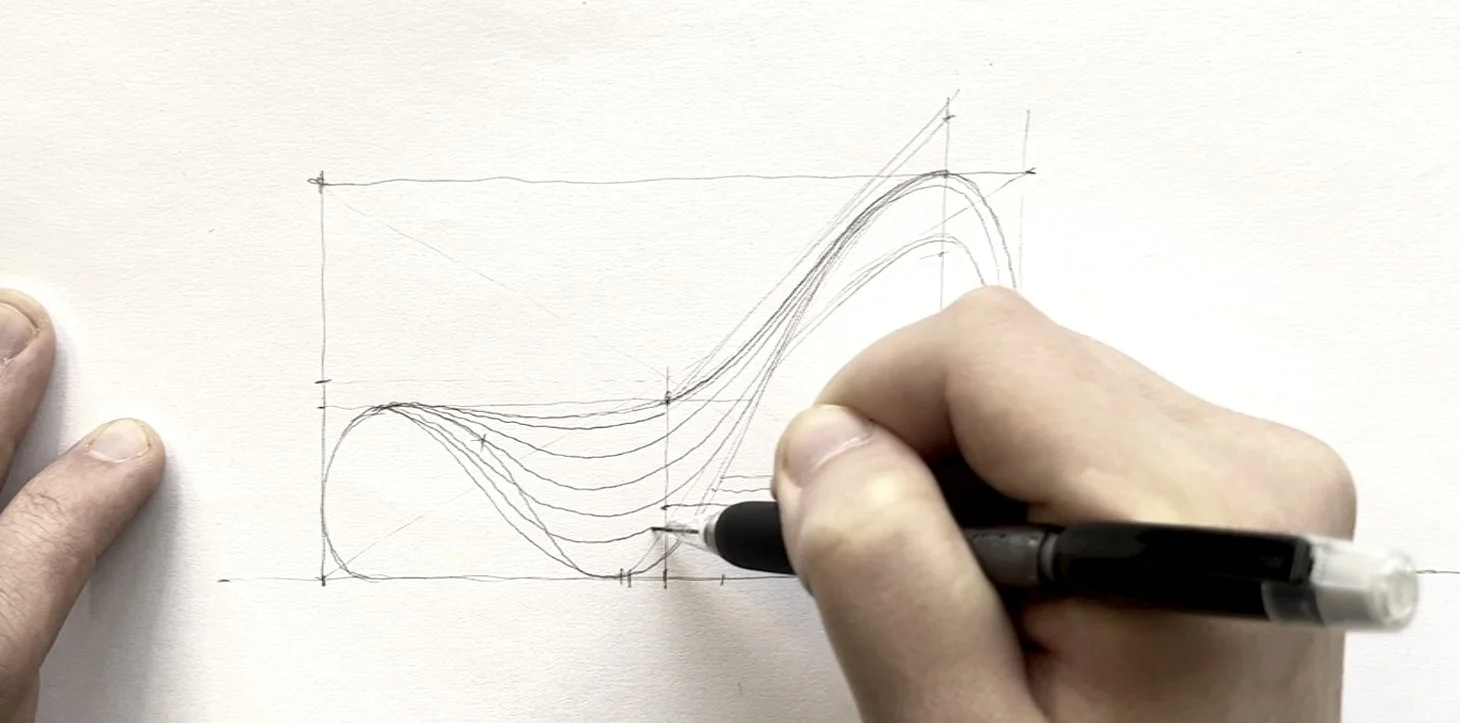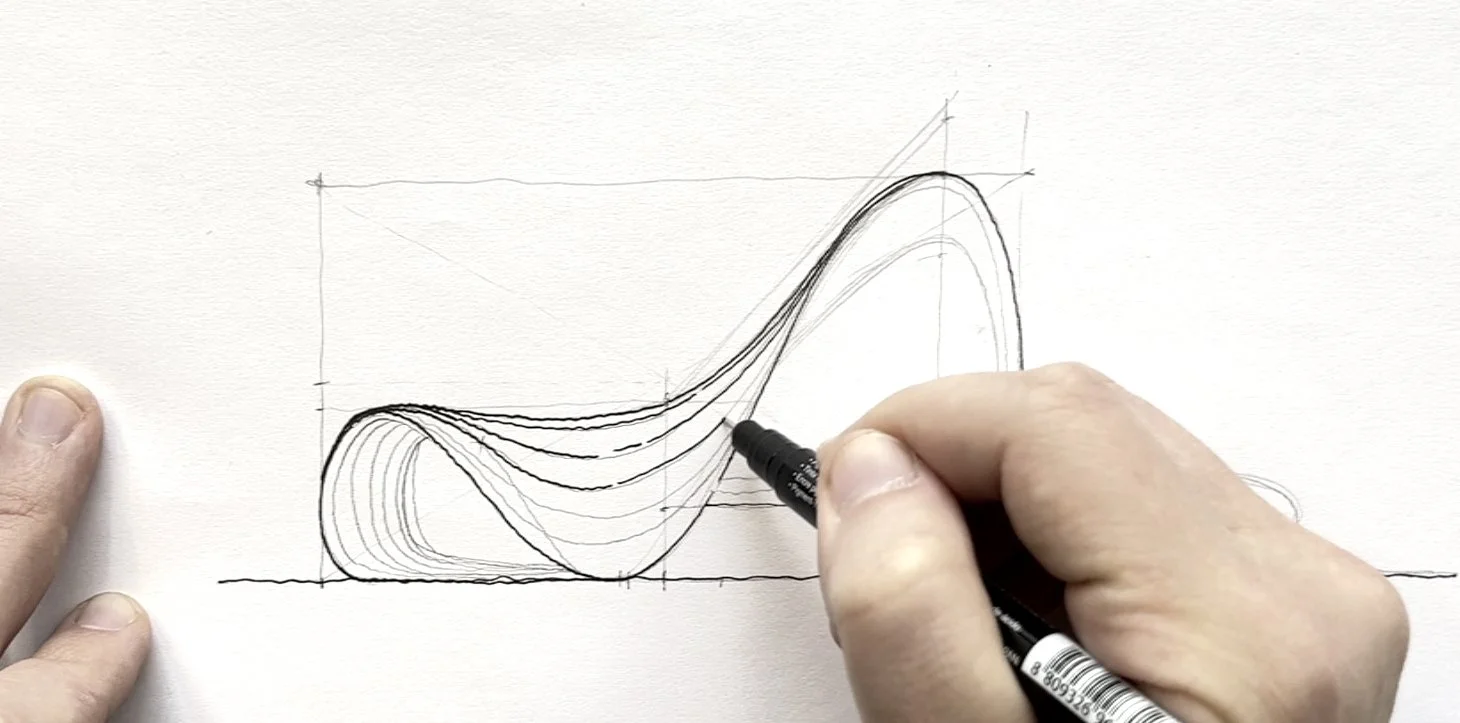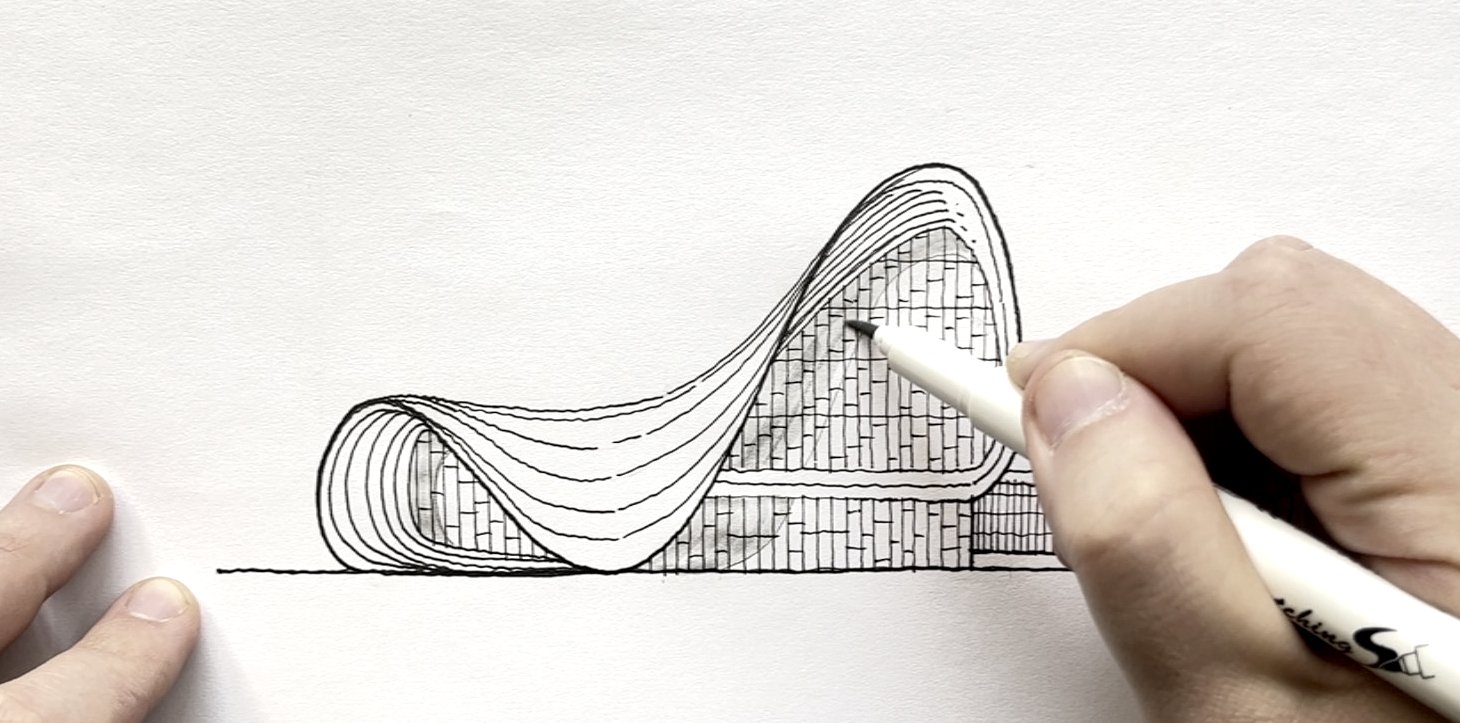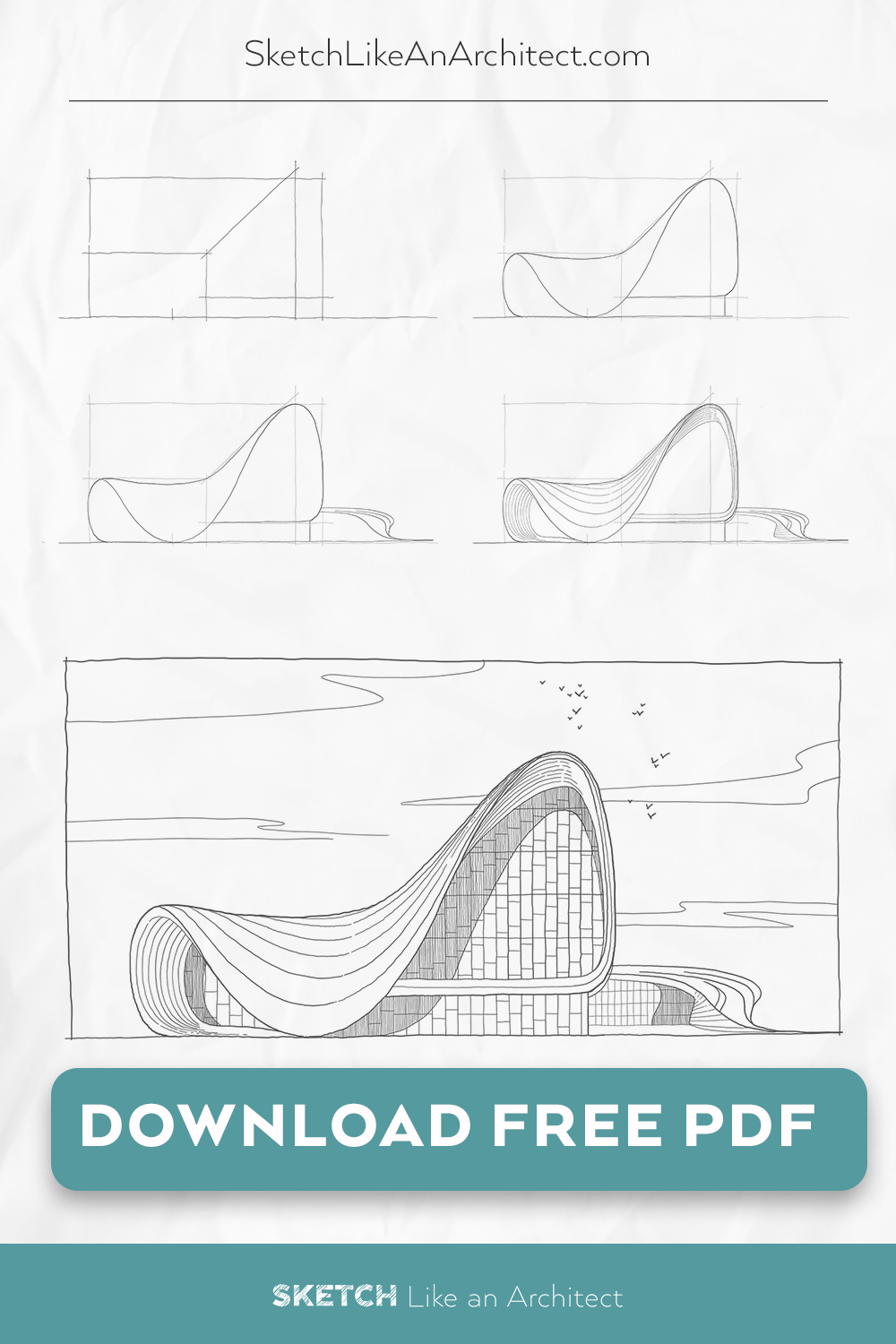Draw Famous Building: Heydar Aliyev Centre in 5 Easy Steps
How to draw organic formS like Heydar Aliyev Centre
Famous for its fluid shape, Heydar Aliyev Centre is one of the masterpieces designed by Zaha Hadid. In this article, I will guide you to draw Heydar Aliyev Centre step-by-step. By the end, you will also learn the fundamentals of drawing organic forms in the right proportion.
Introduction : Heydar Aliyev Center
Heydar Aliyev Center is a cultural center located in Baku, Azerbaijan, designed by famous architect Zaha Hadid. From the exterior view, there is a large skin forming the roof and sweeping side walls. Making it looks like a light handkerchief just landed on the floor.
To draw this organic form building, most beginners would find it difficult to keep the proportion right. So in this article, I am sharing all the tools and techniques I used to draw this building in cca 30 minutes. Let’s get started!
Tools I Used
This time, I am drawing on a plain office paper (80g/m2). Here is a list of tools I will be using:
A mechanical pencil
A few fine liners (tip thicknesses 0.1, 0.3, 0.8)
A grey brush marker
Note that these tools are NOT MANDATORY, you can replace them with similar tools if you don’t have the same. I get asked A LOT about the tools I am using, therefore I have shared all the details in another article, click here to read more.
Step 1: Defining The Proportion
The bounding box technique is common when it comes to drawing complex organic forms. It maps out the shape of the object and ensures the correct aspect ratio.
To start, draw a horizontal line as a ground line. Then, using your pencil as the measurement guide, draw a rectangle with a 1:1.75 proportion. This step is crucial as it defines the proportion of the building in our drawing.
Next, I am drawing a few guidelines and marking the mid-points to help define the building outline :
draw the diagonals of the rectangle to locate its center point, and subsequently the mid points of the sides
unit 1 measurements from both sides on the ground line
Use the existing points to define more guidelines for the building’s silhouette as show on the image below.
At the end of this step, you will get an underlying structure looking like this :
Step 2: Drawing the building’s outline
Draw the main leading curves by connecting the points as shown below.
Add outlining curves of the lower volume on the right hand side.
Add secondary curves which are basically interpolations in between the main leading curves.
Step 3: Trace With Ink
Good news, you just went through the hardest part! You have completed the outline of the Heydar Aliyev Center in proportion. Now, grab your fine liner and trace the outline.
HERE’S A PRO TIP for you to have a cleaner line art: draw the long curve by dividing it into several portions, instead of drawing it all at once.
Draw the contour lines in between the curves on the building surfaces. To show more depth, you can apply different line weights on the contour lines.
Once you have the outline traced, erase the guidelines and pencil drawing underneath.
Step 4: Adding Details
Next, to draw the glazing, divide the glazed surfaces with horizontal and vertical lines as shown below.
Step 5: Final Touch
There are two ways how to add a better sense of depth and plasticity to our drawing. First, use different lineweights to emphasize the leading curves and they way they overlap. The closer the geometry is to the viewer, the thicker line it should carry.
Secondly, add shading to the volume. For that, you can either use :
a pencil for line hatching and rendering, or
a grey brush marker.
Simply mimic the building curve to cast a shadow on the glazed surfaces. And then … Voila! The final outcome looks something like this :
Complex organic forms look intimidating but with the correct technique, drawing it can become so much easier.
Now, draw your own version of this! And to make it easier for you to start, I’ve prepared a step-by-step tutorial and printable worksheet in PDF.
Save this pin for future reference! 👇




